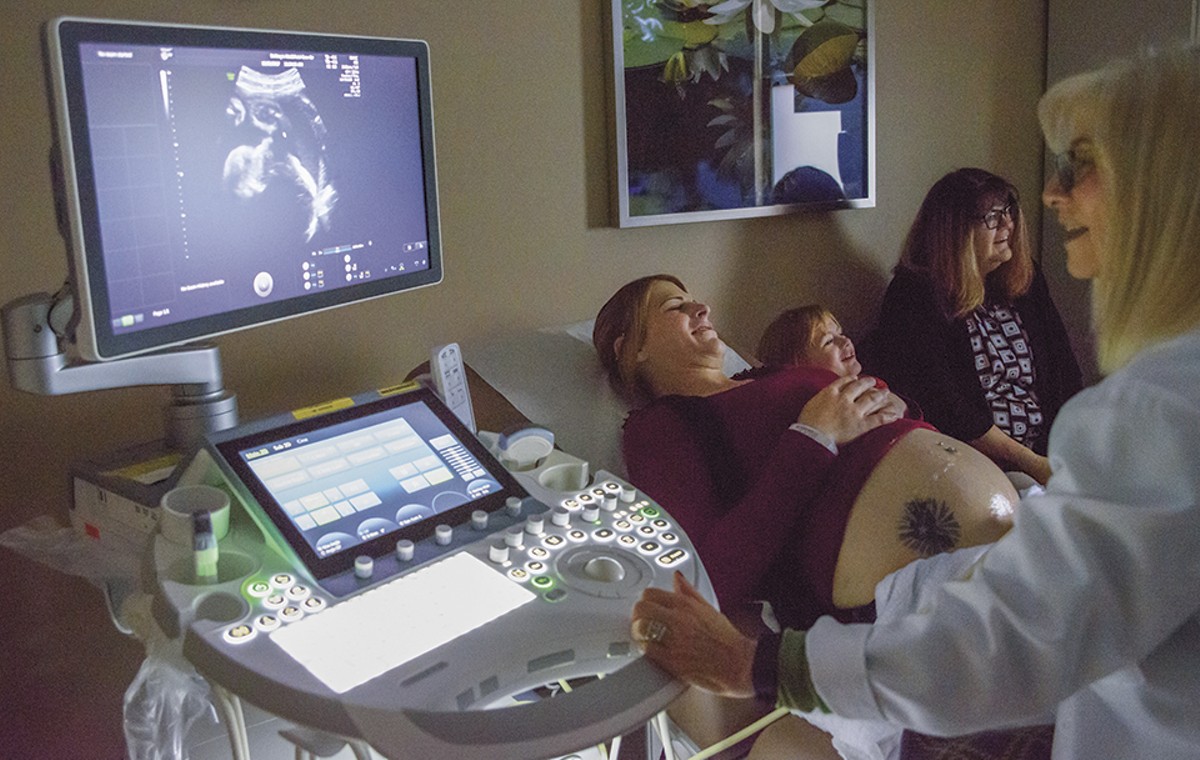Dr. Jaye Shyken, a maternal-fetal medicine specialist at SSM Health St. Mary's Hospital in Richmond Heights, leads the way. Shyken, the medical director of the hospital's Women and Infant Substance Help Center, known as the WISH Center, is a busy woman these days.
The St. Louis region is one of the hardest hit in the nation's raging opioid epidemic. Opioids comprise a class of highly addictive narcotics that include powerful painkillers like OxyContin and illegal drugs such as heroin and fentanyl, a synthetic form of morphine that is up to 100 times more powerful than heroin. Shyken's practice deals exclusively with pregnant women, new moms and newborns either addicted to opioids or enduring the symptoms of withdrawal.
Time can feel like a precious resource when you're one of the only physicians in the nation specializing in the combination of opioids and prenatal care. But on this Friday morning right before Christmas, Shyken seems happy to give the Clemens all the time they need.
Rio, who is six months pregnant with her second child, is about to begin her latest ultrasound test. For Kylie, the next minutes will mark the first time she sees her new sister.
Rio sits on a bed, swings her legs up and stretches out. Shyken pulls up her shirt. Then the physician starts rolling what looks like a plastic wand across Rio's swollen belly.
All eyes focus on a large TV monitor mounted on the far wall. Shadowy smudges and blobs give way to the outline of an arm, a foot, the contours of a tiny skull. A heart, at first barely perceptible, flutters like the wings of a moth.
"I'm so excited, Mommy," Kylie says. "Oh, I see her."
"There you go," Shyken says, pointing to a moving blur on the TV monitor.
"Whooooa," Kylie says.
"They didn't have all this when I was having kids," Linda says.
Shyken points out the baby's bottom, heart and chest. "And right here, over the cervix, is the sort of behind," the doctor says. "The baby is sort of crossways right now."
That's not a problem; Rio isn't due 'til mid-March, and the baby should have plenty of time to right herself. Overall, Rio says, things are going well. "I don't get sick anymore," she says. "I keep things down. It's good."
She glances up at the monitor one more time.
"And the baby's face is up, so it's a little harder to see," Shyken says.
"She's always so low, it's like she's trying to find her way out," Rio says, laughing.
For Rio Clemens, the past months seem almost surreal.
Clemens has struggled for about a decade with an addiction to prescription painkillers and heroin. After serving nearly a year in a Missouri women's prison on a drug-possession charge, she returned to her hometown of Festus, about 35 miles south of St. Louis.
Once back in Festus, Clemens started using drugs again. And then, just weeks later, she learned that she and her boyfriend were going to have a baby.
Clemens did not know what to do. Neither did her regular OB-GYN.
"When I told my doctor what was going on with me, I mean, she almost looked like a deer in the headlights," Clemens recalls. "Like, 'What do I do with you?'"
Luckily, her physician knew about the WISH Center and Dr. Shyken, and sent Clemens there for the specialized help she would need. Shyken immediately placed Clemens on a drug called Subutex, which is also known generically as buprenorphine, to begin weaning her off opiates.
Shyken's goal is to get her pregnant patients on Subutex as soon as possible to reduce the risk of their newborns going through Neonatal Abstinence Syndrome, or NAS, a condition that results from exposure to drugs in the mother's system. Its symptoms include respiratory and feeding problems, jaundice and seizures.
Subutex belongs to a class of drugs known as opiate agonists. Like heroin and other morphine-derived narcotics, buprenorphine contains chemicals that cling to opioid receptors in the brain, reducing pain and triggering feelings of well-being. The drug helps keep at bay the cravings that push recovering opiate users into relapse; Clemens also began an intensive program of almost daily counseling and group programs.
The WISH Center has been a literal lifesaver, she says.
"I think a lot of people stereotype drug-addict moms who get help," she says. "They look down upon them, that their child is born addicted to something."






